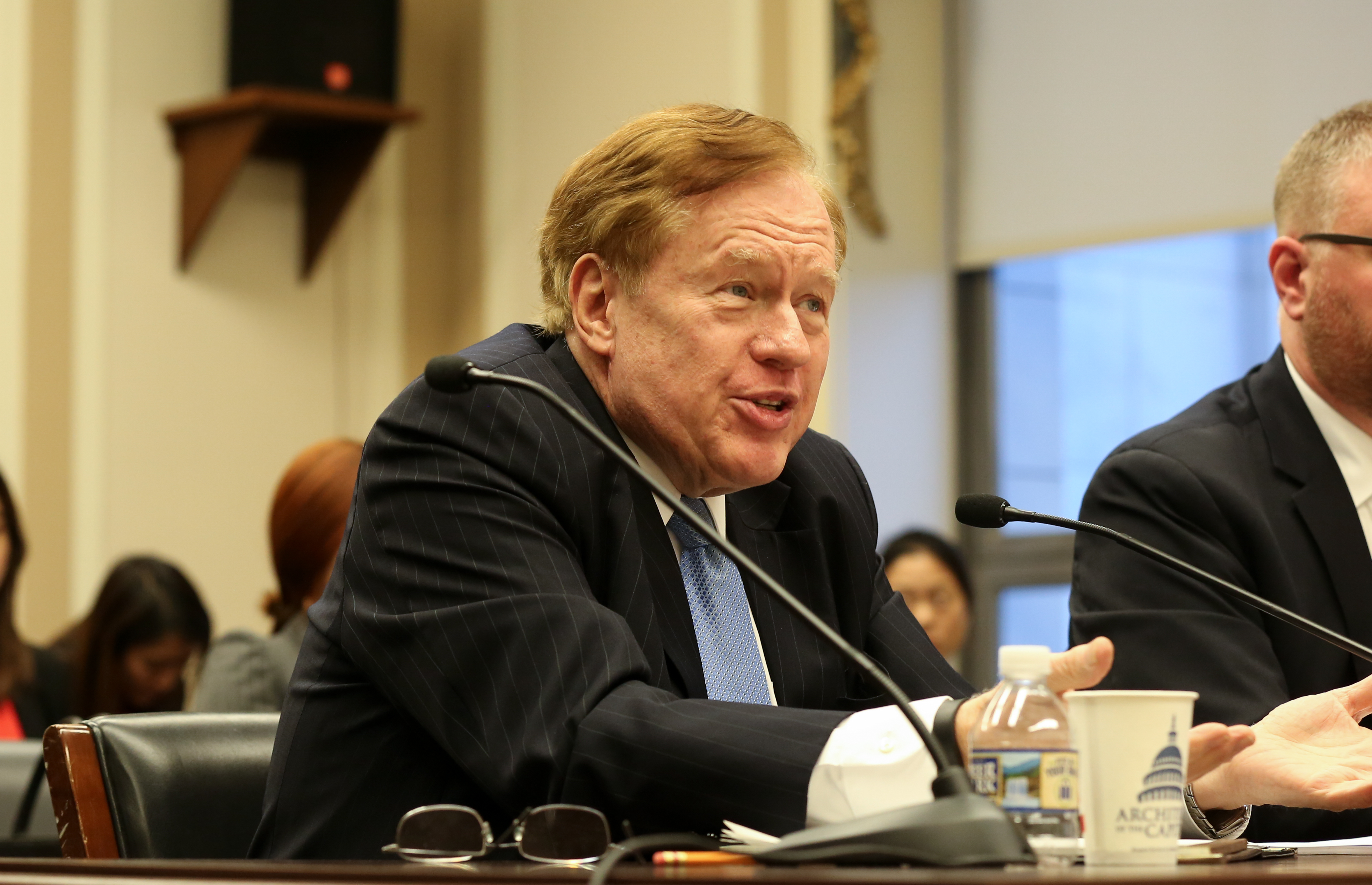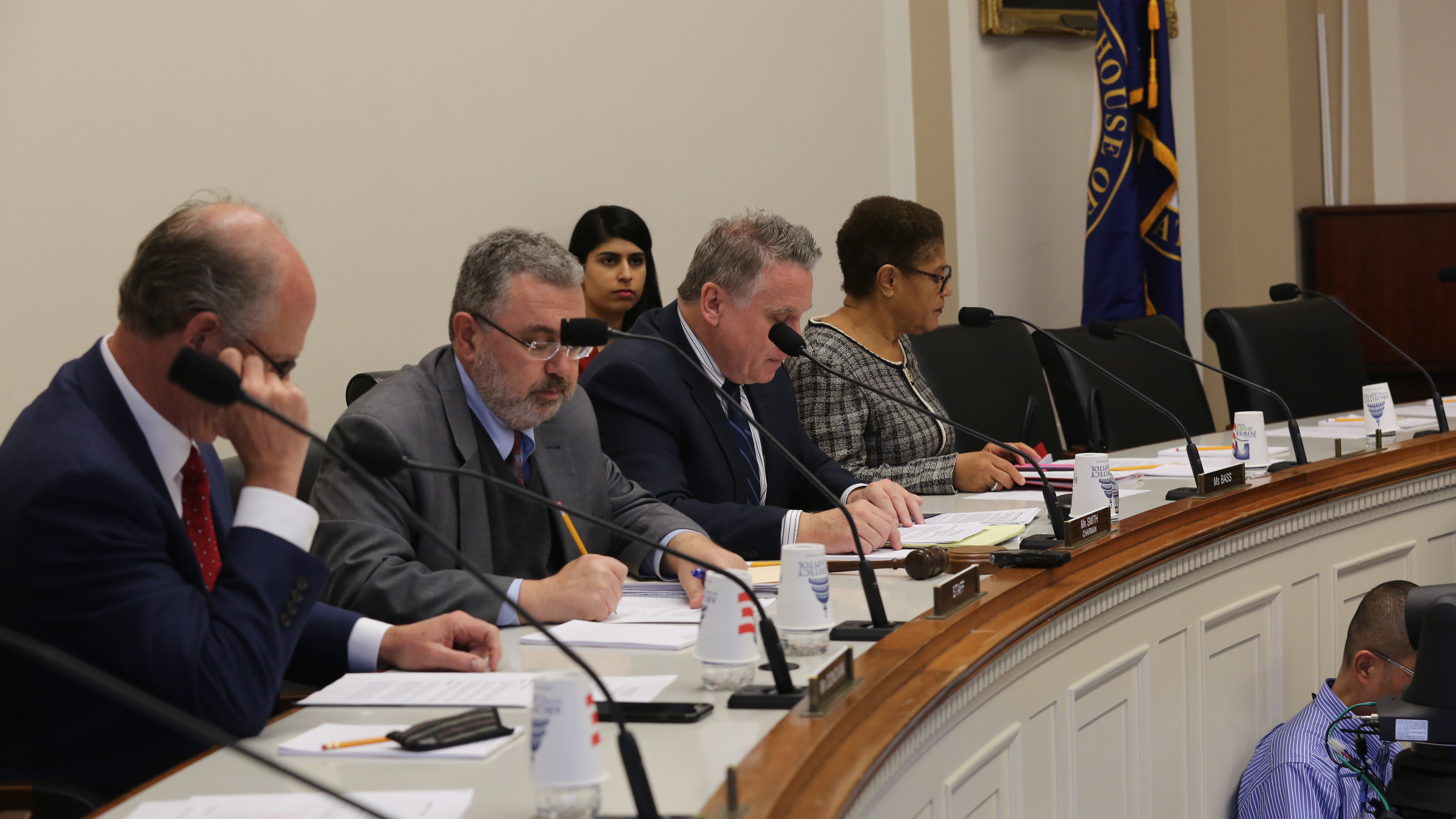
Protecting North Korean Refugees: Testimony Before the House Foreign Affairs Subcommittee
The Foreign Affairs Committee of the U.S. House of Representatives convened a hearing on “Protecting North Korean Refugees” on December 12, 2017 in Washington, DC. The session was chaired by Congressman Chris Smith of New Jersey, Chairman of the Subcommittee on Africa, Global Health, Global Human Rights, and International Organizations.
In his statement at the opening of the hearing, Congressman Smith explained his reasons for convening the session: “Amid escalating tensions on the Korean Peninsula, we cannot forget those suffering under the North Korean regime and those North Korean refugees who are in China.” The congressman’s concern was focused on the “defectors” (refugees from North Korea) who must transit China to reach South Korea. “North Korean asylum seekers are at imminent risk of repatriation, torture, sexual violence, forced abortions, hard labor and even execution,” Smith said. “China is aiding and abetting in crimes against humanity by forcibly repatriating North Korean refugees.” (Congressman Smith’s opening statement)
Amid escalating tensions on the Korean Peninsula, we cannot forget those suffering under the North Korean regime…
Witnesses at the hearing included two refugees who fled North Korea and have been living in South Korea: Ms. Hyeona Ji, Co-Chair of the Worldwide Coalition to Stop Genocide in North Korea, and Ms. Han Ga Hee (alias) who is an announcer and sound engineer at Free North Korea Radio. The other witnesses included Greg Scarlatoiu, Executive Director of the Committee for Human Rights in North Korea and Suzanne Scholte, President of the Defense forum Foundation and Chair of the North Korea Freedom Coalition.
Ambassador Robert R. King, former Special Envoy for North Korea Human Rights at the Department of State (2009-2017) and currently Senior Advisor to the Korea Chair, CSIS, also testified at the hearing. The following is his statement as delivered at the hearing.
Testimony of Ambassador Robert R. King before the U.S. House of Representatives House Foreign Affairs Committee Subcommittee on Africa, Global Health, and Human Rights Hearing on “Protecting North Korean Refugees”
Chairman Smith—Thank you for your very kind introduction. It is a pleasure for me to testify before this Subcommittee. It is nice to be “home.”
I want to thank you for your focus on human rights issues, Mr. Chairman. I greatly respect your commitment and your important work on human rights around the world.
I want to commend you on the caliber of the other witnesses you have invited to testify today. It was extremely helpful to hear the first hand experiences of the two defectors who left North Korea and found refuge in South Korea. Greg Scarlatoiu, the Executive Director of the Committee for Human Rights in North Korea, has produced a series of extremely important studies on human rights abuses in the North, and Suzanne Scholte has been an energetic voice for aiding North Korean defectors and mobilizing opinion against the abuses of the DPRK. It is an honor for me to appear with them.

The issue of refugees or “defectors” who have chosen to leave North Korea is a key issue in the broader question of human rights in the North. There has been a steady flow of defectors from the North since the famine there in the late 1990s. Over the last two decades some 30,000 North Koreans have fled the country and the vast majority have resettled in South Korea.
The concern of Americans to help defectors from the North was a principal factor behind the adoption of the North Korea Human Rights Act in 2004. Since the adoption of that legislation, the State Department and other Federal agencies have helped some 250 North Korean refugees resettle in America. Most refugees, however, have chosen to settle in South Korea because of the familiar language and culture, as well as to join family members already there.
The number of refugees leaving the North annually has recently declined. The high point of nearly 3,000 was reached in 2011, but tighter control of the borders by the North has reduced that number to less than 1,500 last year, and numbers thus far this year look to be even lower.
Virtually all defectors flee the North through China. Very, very few have fled across the inter-Korean border. A few weeks ago, we saw a rare exception when a North Korean soldier was seriously wounded as he escaped through the DMZ, the demilitarized zone. That indicates the danger as well as how uncommon it is for defectors to go directly from the North into South Korea.
For defectors who escape through China, there are serious problems from being trafficked, sold as virtual slaves, or being returned to the North. In the past, when relations were good between China and North Korea, most defectors captured in China were quickly returned to North Korea, where they were sent to brutal reeducation camps.
A couple of years ago, I had a particularly memorable conversation in South Korea with a young woman who fled the North and was finally able to reach the South. I asked her if this had been her first attempt. She said, “Oh, no. It was my sixth try.” Five times previously she sought to leave, and five times she was captured either in the North before she reached the border or after she crossed into China. She was returned to North Korean authorities and spent many months each time in a reeducation camp where she was brutally treated. On her sixth attempt, she and a friend who was going with her decided to take poison tablets with them. Rather than be forcibly returned again and sent to a reeducation camp, they would have taken their own lives.
Mr. Chairman, when Chinese relations with South Korea have been good and China’s relationship with the North was strained, defectors were allowed to go to South Korea. A couple of years ago in a highly unusual arrangement, China allowed some 14 North Korean restaurant workers to fly directly from China to South Korea where they resettled.
A year or so ago, however, a THAAD missile battery was placed in the South by the U.S. with South Korean government approval and cooperation. This led to strained relations between China and the South. Since that time, it has again been more difficult for defectors from the North to reach South Korea through China.
The United States government has strongly supported South Korean efforts to assist defectors to reach the South. On many occasions, I personally raised with senior Chinese government officials the U.S. concern that defectors be permitted to flee the North if that was their wish. I know that other more senior State Department officials also raised this matter with senior Chinese officials during that time.
Mr. Chairman, it is important that the United States continue to urge China to allow defectors to resettle elsewhere. If they wish to go to the South, our government should support South Korean efforts.
It is important that the United States continue to urge China to allow defectors to resettle elsewhere.
Congressional support for refugees—such as through the reauthorization of the North Korea Human Rights Act—is important, and I urge approval of that reauthorization legislation. It has already been adopted by the House, and it now awaits action in the Senate.
A second matter that I was asked to discuss is the issue of providing free and unfettered information to the people of North Korea. The availability of accurate information about events beyond the borders of the North is extremely important for the North Korean people. It limits Pyongyang’s ability to manipulate its people. We must continue to encourage the free flow of information into North Korea.
Although it is illegal to own a radio or television capable of being tuned to stations other than the official government station, based on survey research, we estimate that as many as a third of North Koreans listen to foreign radio broadcasts. Programs from Voice of America and Radio Free Asia—funded by Congressional appropriations—are extremely important. There are also other creative and innovative programs which we fund to get digital information to the North Korean people. These efforts need to be fully funded, encouraged and expanded.
Our human rights efforts are an important aspect of our policy toward North Korea. We must not underestimate the value and importance of these efforts.
Mr. Chairman, military options against North Korea are severely limited. But one thing that we can do that will encourage positive change in the North is to increase the flow of accurate information from the outside world. Our human rights efforts are an important aspect of our policy toward North Korea. We must not underestimate the value and importance of these efforts.
